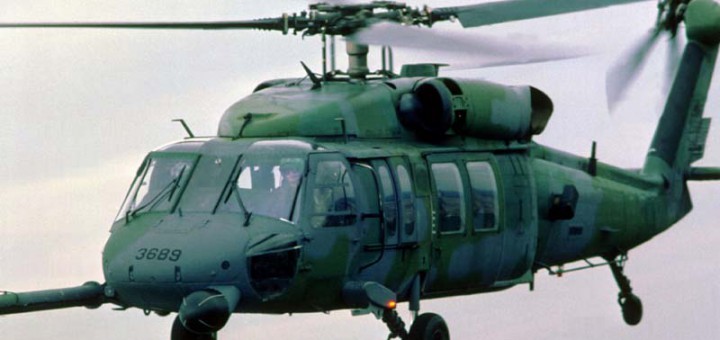National Guard Helicopter traffic causes noise concerns
Larry McCormack / The Tennessean
Lt. Col. Gene Reece knows the new Black Hawk helicopter traffic above Nashville isn’t sitting well with some residents, but he says the Tennessee Army National Guard is trying to minimize the noise.
The increased military presence is a result of the 1-230th Air Cavalry Squadron moving its UH-60 Black Hawk fleet and headquarters in May from Smyrna to Berry Field, which is next door to Nashville International Airport.
“The folks around the airport are seeing helicopters where they haven’t seen them before so they’re inquiring,” said Reece, who is the state aviation officer and is working to address concerns from nearby residents. “We want to be good neighbors.”
The East Thompson Community wants that, too. Located west of Berry Field and the airport, the neighborhood association formed an informal helicopter committee to address the noise and increased traffic above their homes, said Keefer Dickerson, a committee member. They’ve been left in the dark, he said.
“There just was no kind of communication with the community as to what would be happening,” Dickerson said. “We just want them to be a better neighbor. We just want them to have the same respect that we try to have for our other neighbors around here.”
Reece has talked to some residents individually and plans to address the community during the neighborhood’s Thursday meeting. While he doesn’t think everyone will leave happy, Reece hopes to answer questions and clear up confusion. Residents hope the neighborhood keeps its tranquil setting.
“If there’s a way to change their flight path to make it less invasive and impacting, that’s what we’d like to do,” Dickerson said.
The National Guard brings up resident concerns during its weekly meetings with the Federal Aviation Administration, which is overseeing the 180-day testing phase of three new routes pilots are using to fly in and out of Nashville’s airspace. The helicopters fly slower than airplanes and would cause an air traffic jam if they flew the existing routes used by the airport, Reece said.
“We’re not doing military training in and around this airport,” Reece said. “It’s about safety. It’s about handling more traffic at the same time.”
Pilots use the three routes that spiral out of Berry Field like interstates. They now fly 1,000 feet above the ground, exiting only when they reach the end of Nashville’s airspace, and then move freely to their training sites around the state, Reece said.
The National Guard worked with the FAA to develop the helicopter travel routes so they line up with interstates, major roads and low-density areas, FAA spokeswoman Kathleen Bergen said. The testing phase began in May and is scheduled to end in October, at which point the routes may become permanent and available to civilian helicopters, she said.
Two of those routes fly right by the East Thompson Community, which is bordered by Mill Creek, Murfreesboro Pike and Briley Parkway. Despite their close proximity to the airport, the neighborhood didn’t see much air traffic overhead before the guard’s arrival, said Dickerson, who moved to the neighborhood in 2010.
“When I found out this particular little wedge of the neighborhood doesn’t get the planes flying directly overhead that was a real plus, and now, of course, that’s been a drastic change here in the last couple of months,” Dickerson said. “You can hear it coming from quite a ways, and by the time it does actually get closer, the direct path over or around the neighborhood – it’s rattling windows.”
The routes:
- WSM route moves soldiers west on Briley Parkway before heading south over Interstate 65 past Brentwood. Multi-helicopter flights are not allowed on this route, Reece said.
- Skyline route takes Black Hawks north on Murfreesboro Pike, transitioning to Interstates 40, 24 and 65 past East Nashville and Madison.
- Speedway route avoids the East Thompson Community and takes pilots east. It briefly follows Murfreesboro Pike, before jetting across Percy Priest Lake to the Nashville Superspeedway in Wilson County. A smaller offshoot route juts south from the speedway before Highway 171, taking the soldiers to their former home in Smyrna.
The noise from a passing Black Hawk helicopter lasts about nine seconds, Reece said. The guard averages about 125 flights per month out of Berry Field, and the WSM route is used about 10 percent of the time.
The guard has been responsive to residents’ feedback and already has made some adjustments to lessen their impact on those they fly over, Reece said. He explained those changes in late July as he stood before a map of the helicopter routes. Multi-color straight pins were stuck in it, plotting the locations of concerns called in by residents.
If a Black Hawk needs to wait on an airplane to land, they now hover over a nearby business instead of homes in the East Thompson Community, he said. They’ve also shifted one helicopter route away from a Percy Priest Lake-area neighborhood and restricted the WSM route to only solo flights, Reece said.
The guard is far from the only government or military agency flying helicopters in Nashville, but they are the new kids on the block.
The squadron and its UH-60 Black Hawks were previously headquartered in World War II-era buildings at the Army Aviation Support Facility in Smyrna. The buildings required about $70 million in renovations, but instead of spending taxpayer dollars to remodel, they opted to move to the empty and much newer Berry Field hangar, said Maj. Gen. Max Haston, the adjutant general of the Tennessee National Guard.
Story continues below photo
“We had a facility sitting at Berry Field,” Haston said. “It made sense to move 11 nautical miles down the road to Berry Field.”
The hangar and the ramp opened after the Air National Guard’s 118th Wing, which has called Berry Field home for more than 90 years, lost the C-130 Hercules airplane during the 2005 Base Closure and Realignment Commission. They served as a C-130 training site for allied aircrews until it switched to intelligence, surveillance and other support missions. The last C-130 left Nashville at the end of 2012, and the National Guard squadron’s UH-60 Black Hawks touched down in May.
The National Guard had to write an environmental impact statement, which included noise, as a part of the move to Nashville, Haston said. The goal is to be great neighbors and servants of Tennessee residents, he said.
“Given the temperature of the day, given the direction the winds blowing, you’re going to hear helicopters flying just like you hear jets flying out of there,” Haston said. “We’re very sensitive to the fact that we’re a part of the community and we’re the new kid on the block and people are going to have to get used to us.”
Reach Holly Meyer at 615-259-8241 and on Twitter @HollyAMeyer.
Read or Share this story: http://tnne.ws/1NBWOBN
Source: Tennessean
Black Hawk helicopters concern neighborhood




![1-4530fc788b[1]](http://coffeecountytn.biz/wp-content/uploads/2015/08/1-4530fc788b1-e1439952268930.jpg)











Recent Comments